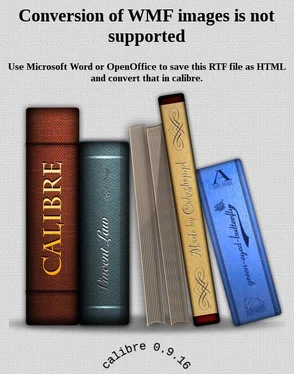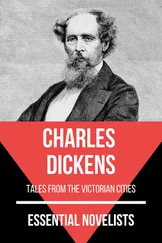Charles Dickens - Speeches - Literary & Social
Здесь есть возможность читать онлайн «Charles Dickens - Speeches - Literary & Social» весь текст электронной книги совершенно бесплатно (целиком полную версию без сокращений). В некоторых случаях можно слушать аудио, скачать через торрент в формате fb2 и присутствует краткое содержание. Жанр: Классическая проза, на английском языке. Описание произведения, (предисловие) а так же отзывы посетителей доступны на портале библиотеки ЛибКат.
- Название:Speeches: Literary & Social
- Автор:
- Жанр:
- Год:неизвестен
- ISBN:нет данных
- Рейтинг книги:5 / 5. Голосов: 1
-
Избранное:Добавить в избранное
- Отзывы:
-
Ваша оценка:
- 100
- 1
- 2
- 3
- 4
- 5
Speeches: Literary & Social: краткое содержание, описание и аннотация
Предлагаем к чтению аннотацию, описание, краткое содержание или предисловие (зависит от того, что написал сам автор книги «Speeches: Literary & Social»). Если вы не нашли необходимую информацию о книге — напишите в комментариях, мы постараемся отыскать её.
Speeches: Literary & Social — читать онлайн бесплатно полную книгу (весь текст) целиком
Ниже представлен текст книги, разбитый по страницам. Система сохранения места последней прочитанной страницы, позволяет с удобством читать онлайн бесплатно книгу «Speeches: Literary & Social», без необходимости каждый раз заново искать на чём Вы остановились. Поставьте закладку, и сможете в любой момент перейти на страницу, на которой закончили чтение.
Интервал:
Закладка:
No, ladies and gentlemen, do not let us be discouraged or deceived by any fine, vapid, empty words. The true material age is the stupid Chinese age, in which no new or grand revelations of nature are granted, because they are ignorantly and insolently repelled, instead of being diligently and humbly sought. The difference between the ancient fiction of the mad braggart defying the lightning and the modern historical picture of Franklin drawing it towards his kite, in order that he might the more profoundly study that which was set before him to be studied (or it would not have been there), happily expresses to my mind the distinction between the much-maligned material sages - material in one sense, I suppose, but in another very immaterial sages - of the Celestial Empire school. Consider whether it is likely or unlikely, natural or unnatural, reasonable or unreasonable, that I, a being capable of thought, and finding myself surrounded by such discovered wonders on every hand, should sometimes ask myself the question - should put to myself the solemn consideration - can these things be among those things which might have been disclosed by divine lips nigh upon two thousand years ago, but that the people of that time could not bear them? And whether this be so or no, if I am so surrounded on every hand, is not my moral responsibility tremendously increased thereby, and with it my intelligence and submission as a child of Adam and of the dust, before that Shining Source which equally of all that is granted and all that is withheld holds in His mighty hands the unapproachable mysteries of life and death.
To the students of your industrial classes generally I have had it in my mind, first, to commend the short motto, in two words, "Courage - Persevere." This is the motto of a friend and worker. Not because the eyes of Europe are upon them, for I don't in the least believe it; nor because the eyes of even England are upon them, for I don't in the least believe it; not because their doings will be proclaimed with blast of trumpet at street corners, for no such musical performances will take place; not because self- improvement is at all certain to lead to worldly success, but simply because it is good and right of itself, and because, being so, it does assuredly bring with it its own resources and its own rewards. I would further commend to them a very wise and witty piece of advice on the conduct of the understanding which was given more than half a century ago by the Rev. Sydney Smith - wisest and wittiest of the friends I have lost. He says - and he is speaking, you will please understand, as I speak, to a school of volunteer students - he says: "There is a piece of foppery which is to be cautiously guarded against, the foppery of universality, of knowing all sciences and excelling in all arts - chymistry, mathematics, algebra, dancing, history, reasoning, riding, fencing, Low Dutch, High Dutch, and natural philosophy. In short, the modern precept of education very often is, 'Take the Admirable Crichton for your model, I would have you ignorant of nothing.' Now," says he, "my advice, on the contrary, is to have the courage to be ignorant of a great number of things, in order that you may avoid the calamity of being ignorant of everything."
To this I would superadd a little truth, which holds equally good of my own life and the life of every eminent man I have ever known. The one serviceable, safe, certain, remunerative, attainable quality in every study and in every pursuit is the quality of attention. My own invention or imagination, such as it is, I can most truthfully assure you, would never have served me as it has, but for the habit of commonplace, humble, patient, daily, toiling, drudging attention. Genius, vivacity, quickness of penetration, brilliancy in association of ideas - such mental qualities, like the qualities of the apparition of the externally armed head in MACBETH, will not be commanded; but attention, after due term of submissive service, always will. Like certain plants which the poorest peasant may grow in the poorest soil, it can be cultivated by any one, and it is certain in its own good season to bring forth flowers and fruit. I can most truthfully assure you by-the-by, that this eulogium on attention is so far quite disinterested on my part as that it has not the least reference whatever to the attention with which you have honoured me.
Well, ladies and gentlemen, I have done. I cannot but reflect how often you have probably heard within these walls one of the foremost men, and certainly one of the very best speakers, if not the very best, in England. I could not say to myself, when I began just now, in Shakespeare's line -
"I will be BRIGHT and shining gold,"
but I could say to myself, and I did say to myself, "I will be as natural and easy as I possibly can," because my heart has all been in my subject, and I bear an old love towards Birmingham and Birmingham men. I have said that I bear an old love towards Birmingham and Birmingham men; let me amend a small omission, and add "and Birmingham women." This ring I wear on my finger now is an old Birmingham gift, and if by rubbing it I could raise the spirit that was obedient to Aladdin's ring, I heartily assure you that my first instruction to that genius on the spot should be to place himself at Birmingham's disposal in the best of causes.
In acknowledging the vote of thanks, Mr. Dickens said:-
Ladies and gentlemen, as I hope it is more than possible that I shall have the pleasure of meeting you again before Christmas is out, and shall have the great interest of seeing the faces and touching the bands of the successful competitors in your lists, I will not cast upon that anticipated meeting the terrible foreshadowing of dread which must inevitably result from a second speech. I thank you most heartily, and I most sincerely and fervently say to you, "Good night, and God bless you." In reference to the appropriate and excellent remarks of Mr. Dixon, I will now discharge my conscience of my political creed, which is contained in two articles, and has no reference to any party or persons. My faith in the people governing is, on the whole, infinitesimal; my faith in the People governed is, on the whole, illimitable.
SPEECH XLIII
Birmingham, January 6, 1870
On the evening of the above date, Mr. Dickens, as President of the Birmingham and Midland Institute, distributed the prizes and certificates awarded to the most successful students in the first year. The proceedings took place in the Town Hall: Mr. Dickens entered at eight o'clock, accompanied by the officers of the Institute, and was received with loud applause. After the lapse of a minute or two, he rose and said:-
LADIES AND GENTLEMEN, - When I last had the honour to preside over a meeting of the Institution which again brings us together, I took occasion to remark upon a certain superabundance of public speaking which seems to me to distinguish the present time. It will require very little self-denial on my part to practise now what I preached then; firstly, because I said my little say that night; and secondly, because we have definite and highly interesting action before us to-night. We have now to bestow the rewards which have been brilliantly won by the most successful competitors in the society's lists. I say the most successful, because to-night we should particularly observe, I think, that there is success in all honest endeavour, and that there is some victory gained in every gallant struggle that is made. To strive at all involves a victory achieved over sloth, inertness, and indifference; and competition for these prizes involves, besides, in the vast majority of cases, competition with and mastery asserted over circumstances adverse to the effort made. Therefore, every losing competitor among my hearers may be certain that he has still won much - very much - and that he can well afford to swell the triumph of his rivals who have passed him in the race.
Читать дальшеИнтервал:
Закладка:
Похожие книги на «Speeches: Literary & Social»
Представляем Вашему вниманию похожие книги на «Speeches: Literary & Social» списком для выбора. Мы отобрали схожую по названию и смыслу литературу в надежде предоставить читателям больше вариантов отыскать новые, интересные, ещё непрочитанные произведения.
Обсуждение, отзывы о книге «Speeches: Literary & Social» и просто собственные мнения читателей. Оставьте ваши комментарии, напишите, что Вы думаете о произведении, его смысле или главных героях. Укажите что конкретно понравилось, а что нет, и почему Вы так считаете.












